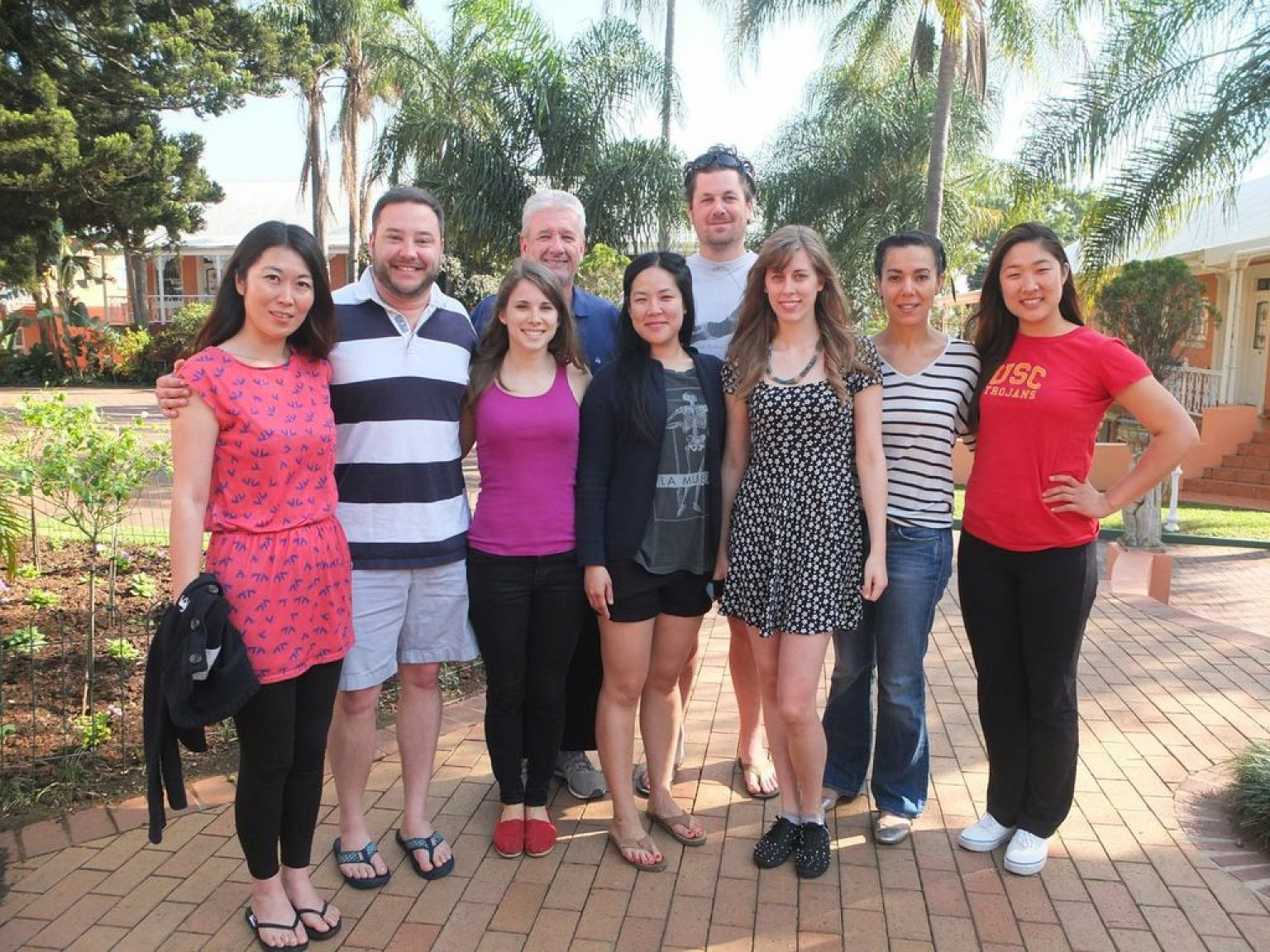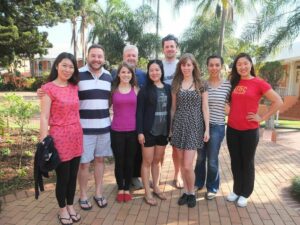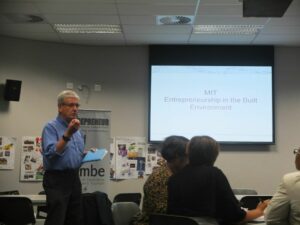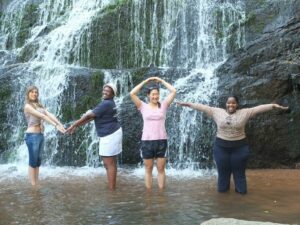
MIT Launches CREATE in South Africa
The dismantling of the apartheid regime in South Africa brought the country a heady sense of promise, but one eclipsed in recent years by harsh economic realities.
Unemployment, for example, has risen to near-record levels – officially about 25%, but more broadly about 37%. The government has attempted to provide economic growth and redistribution of wealth, but it has struggled to achieve monetary and fiscal discipline.
The province of KwaZulu-Natal (KZN) has seen its share of struggles. According to official surveys, 50% of its people live in poverty. Basic services are unaffordable to 54% of unemployed people – and strikingly, to 43% of employed people.
It is in this bleak economic climate that John Kennedy, a Lecturer at the MIT Center for Real Estate (MIT/CRE), seeks to help individuals and communities in South Africa become more self-reliant. He has launched an MIT program to foster economic independence through entrepreneurship and innovation in local markets.
CREATE
Kennedy’s project is called CREATE (Cultural, Research, Entrepreneurship, and Technology Exchange) and he initiated it in partnership with the University of KwaZulu-Natal. “The project seeks to foster poverty eradication and entrepreneurship in South Africa,” Kennedy said, “by giving MIT students a chance to engage at ground-level with communities in KZN.”
CREATE deploys MIT students to South Africa to participate in multi-disciplinary teams that include KZN community leaders, graduate students, and private-sector practitioners. These teams identify factors that restrict economic growth in disadvantaged communities, then respond in the field with innovative, collaborative solutions.
“The CREATE model focuses on two points of intervention,” Kennedy said. “First, it helps ambitious, imaginative individuals to identify economic opportunities in their local communities. Second, it empowers these entrepreneurs with the training and tools they need to grow and sustain commercial ventures.”
Professor Kennedy believes that MIT students can play a vital role in helping to promote positive economic growth. “CREATE is a practical extension of the MIT motto Mens et Manus (Mind and Hand),” he said. “It lets students put their ideas into action in the spirit of public service.” It was developed partly in response to student demand. Students wanted to extend their theoretical training by applying it where it could do the most good.
CREATE at Work
To that end, the CREATE project brought seven MIT students – including three of the Center’s MSRED candidates – to the city of Durban, South Africa, KZN’s largest city and Africa’s busiest port. For two weeks in May of 2013, students co-facilitated multi-disciplinary teams that provided training and strategic consulting to community groups seeking to launch new ventures.
Before they deployed, MIT students linked with local KZN team members to better understand the development challenges they faced, and as importantly, the community dynamics involved. Team building exercises and consultation, both pre-travel and upon arrival in Durban, laid the groundwork for collaboration.
According to Kennedy, the first phase of the project identified significant ways that current real estate and land use practices in KZN have impeded economic and community development. Then during the two-week exchange, MIT students collaborated with their local teams to implement solutions at three unique field sites.
Field Site #1: Ballito
(30min NE of Durban)
iLembe Chamber of Commerce
The Chamber is developing a competition to empower disadvantaged local residents to build new businesses by offering business plan mentorship and seed funding. The CREATE team spent six days working with the program’s administration to evaluate their training curriculum. They also consulted with four aspiring entrepreneurs who are program graduates.
The result was a complete overhaul of the Chamber’s training program, with the revised program set to launch in July. The team also developed new strategies for increased market access for each of the program’s entrepreneurs.
Field Site #2: Pietermaritzburg
(40min N of Durban)
Business Support Center (BSC)
As an advocate for local Disadvantaged Business Enterprises, BSC identifies promising entrepreneurs, and matches them with established manufacturing companies. The entrepreneurs then create new ventures to fulfill key components in the manufacturer’s supply chain, as well as to support new cooperatives in other sectors.
The CREATE team worked with a pallet producer, an aluminum products machine shop, and a women’s co-op for artisan bead products.
During the six days at BSC, the team facilitated a dialogue with a local company to ensure that sub-contractors follow labor laws. The team also developed a strategy with the bead co-op for accessing international markets. And they created a new intake form for aspiring entrepreneurs so that BSC can process and support new businesses more efficiently.
Field Site #3: Port Shepstone
(70min SW of Durban)
Network Action Group (NAG)
NAG is a hub of over 200 NGOs, and it works in a very rural and traditional context with more than 50% unemployment, isolation from commercial markets, and high HIV rates. NAG mentors a group of over 30 young residents who have leadership and entrepreneurial traits, but do not all have the tools or experience they need to capture new business opportunities.
The CREATE team focused on empowering the young leaders – helping them to identify potential new income streams in existing businesses, and also to evaluate measured risks as a path to economic self-sufficiency. In addition, they coached them in understanding and overcoming the social pressures of tribalism and neighbor jealousy.
Results
MIT’s CREATE program was applauded by all of its South African participants for engaging directly and meaningfully with obstacles to economic development.
“In a culture conditioned to expect State resources and interventions to solve socio-economic hardships,” Kennedy said, “CREATE injected a fresh entrepreneurial DNA. It outlined practical, incremental approaches to free-market business that relied on individuals putting their own ideas into action.”
The program framework is dynamic and still evolving. Currently, it includes bi-annual travel exchanges to Durban, South Africa for MIT students (during IAP and summer sessions), as well as individual and group Skype sessions throughout the academic year between students from MIT and KWZ University.
The CREATE program has brought new learning to both academic departments, and has facilitated the empowerment of local entrepreneurs. It also provides a framework for business practitioners in South Africa to coordinate entrepreneurial training and mentoring, and to leverage MIT participation for greater impact.
In this, its first iteration, the CREATE program has demonstrated its effectiveness as a vehicle for deploying MIT’s intellectual resources. All who participated in the program believe that it has just begun to realize its full promise.
“For communities facing the kind of development problems that MIT wants to solve,” Kennedy said, “the potential impact is huge.”



